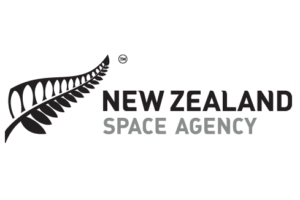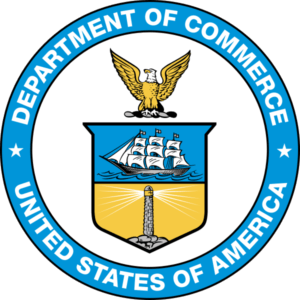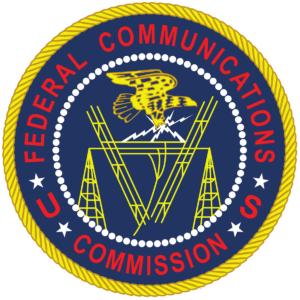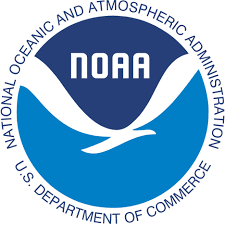Who regulates and operates the Indian space industry?
The Indian space industry is regulated by key government organisations. Similarly, the main operators are government organisations – however this may begin to change as private sector growth is encouraged by proposed legislation.
Key regulatory mechanisms include,
- Indian Space Research Organisation
- Antrix Corporation Limited (ACL)
- Relevant legislation
Indian Space Research Organisation
The Indian Space Research Organisation (ISRO) is the key government body that offers launch services to national and foreign entities. The ISRO regulates all parts of the Indian Space industry and operates under the Department of Space. On date of writing, the ISRO has launched 297 foreign satellites of 33 different countries. There is definitely an established flight history.
What launch vehicles do ISRO operate?
The ISRO operates a PSLV (Polar Satellite Launch Vehicle) and a GSLV (Geosynchronous Satellite Launch Vehicle). See What services are offered in India further on this page, for more information.
Antrix Corporation Limited (ACL)
Antrix is a company owned by the Government of India and is under the administrative control of the Department of Space. Antrix is the commercial arm of the ISRO.
If a foreign entity wishes to launch out of India, they have to form a contract with Antrix in order to obtain launch services. Contracts with Antrix form the launch agreement.
The details of such contracts are only available to the involved parties. As such, it is not publicly known exactly what terms are suggested and agreed upon by Antrix. Due to this, it is recommended to utilise the services of a flight broker, or a specialist with experience operating with India.
USE CASE: Launching out of India
ANGELS Aerospace has a small satellite that they are wishing to launch into LEO.
They have:
- Considered other countries. It is worthwhile considering the launch services provided by other countries before deciding where to launch your space object from.
- Discussed their options. It is worthwhile discussing your potential launch out of India with a launch broker and legal advisor before settling negotiations with Antrix.
Relevant legislation
Despite this well-established commercial framework involving ISRO and Antrix, there is a lack of uniform national space legislation in India.
However, there is currently a draft version of Indian National Space Legislation, the Space Activities Bill 2017 (IND). This draft Bill is important as it contains rules that apply not only to Indian citizens, but also foreigners wishing to launch out of India.
Some of the key provisions in this Bill include:
- The central government still has the power to create relevant rules
- The central government will formulate processes for distributing and authorising licenses for commercial space activities
- The central government will create and maintain a register for space objects
- If any person undertakes any commercial space activity without authorisation, they shall be punished with imprisonment up to 3 years or fined more than ₹1 crore or both.
If you wish to read the full document it can be accessed here
IMPORTANT TO KNOW
- This legislation is in draft format. It will not apply until it has been completely passed by Parliament.
- The proposed legislation is facing criticism in India as it still allows considerable discretion on part of the central government.
- As such, it may be subject to change.
What services are offered in India?
The ISRO operates a PSLV (Polar Satellite Launch Vehicle) and a GSLV (Geosynchronous Satellite Launch Vehicle). Foreign satellite launches are carried out by the PSLV.
FROM ANTRIX
“PSLV, with capabilities to perform low inclination LEO, SSO, Geo-synchronous Transfer Orbit (GTO) and sub-GTO missions, is a versatile, robust and reliable launcher. PSLV has so far had 35 successive successful flights. PSLV, with its several satellite mounting adaptor options, can accommodate a number of satellites in a single launch, making it an ideal launcher for nano, micro, mini and main satellites together. So far, 74 international customer satellites from 20 countries have been successfully launched onboard PSLV, through commercial arrangements.”
LINK SOURCES
Visit ISRO’s website for more information on the capabilities of both PSLV and GSLV: https://www.isro.gov.in/launchers
Visit Antrix’s website for more information on specific capabilities of PSLV http://www.antrix.co.in/launchers/pslv
Visit Antrix’s website for more information on specific capabilities of GSLV http://www.antrix.co.in/launchers/gslv
Key considerations
Advantages of launching from India
- India has significant flight heritage with its launch vehicles.
- There is a well-established commercial framework, with many operators having successfully dealt with Antrix Corporation in the past, including Australian operators.
- India can be seen as a more flexible launch destination, due to the lack of strict national legislation
Potential disadvantages of launching from India
- Caution ought to be exercised, due to the nature of the commercial framework being governed by regulators rather than legislation. This leaves room for unpredictability.
- Previous operators contract terms with Antrix are publicly unknown, and as such precise details are unknown.
- Recent events in relation to the launch of Swarm satellites highlight the need to ensure you are meeting your domestic obligations as well as any Indian obligations contained in your launch services contract.
- There were adverse reactions from many countries following the Indian ASAT test. These considerations may be relevant to your operations out of India.
SEEK LEGAL ADVICE IF:
- You are considering how your potential launch out of India might be regarded by the Australian government
Click here for an article on getting legal advice.
Comparing foreign licensing regimes
Key features:
- Australian space law applies to space activities in Australia, and to Australian nationals conducting space activities abroad.
- Space operators are required to hold insurance of up to AUD$100 million under Australian space law.
- The Australian Space Agency charges costs for assessing applications for space licences and permits
Primary regulator:
The primary regulator of space activities in Australia is the Australian Space Agency.

Want to learn more about space law in Australia? Visit our article on laws applicable to launch.
Key features:
- The New Zealand space licensing regime does not charge fees for an application, or for holding a licence or permit.
- New Zealand currently recognises certain jurisdictions as meeting their licence or permit requirements
- Australia and New Zealand offer equivalent space licences and permits
Primary regulator:
The primary regulator of space activities in New Zealand is the NZ Space Agency.

Want to learn more about space law in New Zealand? Visit our article on space law in New Zealand.
Key features:
- The United States offers three different licences and permits: Launch/Re-entry Vehicles Specific Licence, Operator licence, Experimental Permits for Reusable Suborbital Rockets.
- The costs of launching activities in the United States depends on various factors, including: the launch vehicle used, size and destination of the payload and insurance requirements, among others.
- licence holders are required to make a reciprocal waiver of claims with the relevant parties involved in launch or re-entry services under which each party agrees to be responsible for personal injury to, death of, or property damage or loss sustained by it or its own employees resulting from an activity carried out under the applicable licence.
- Space operators are subject to ongoing monitoring by the Federal Aviation Administration Authority to ensure compliance with licence conditions.
Government regulators:
The regulation of space activities in the United States is split between several federal government agencies:
- The Federal Aviation Administration (FAA)
- The Federal Communications Commission (FCC)
- The National Oceanographic and Atmospheric Administration (NOAA)
- The Department of Commerce




Want to learn more about space law in the United States? Visit our article on space law in the United States.
Key features:
- Three primary licence activities: Operator, Spaceport and Range Control.
- The granting of licences is controlled by the prescribed Regulator.
- Regulations, including insurance requirements, are still in the process of being drafted.
Primary regulator:
The primary regulator of space activities in the United Kingdom is the UK Space Agency.

Want to learn more about space law in the United Kingdom? Visit our article on space law in the United Kingdom.
Key features:
- Separated ‘launch’ and ‘command’ phase, enabling ease in apportionment of liability in the case of damage.
- Four obtainable licences in addition to case-by-case authorisation, with lack of clarity surrounding costs.
- Clear insurance requirements and regulations regarding liability.
Primary regulator:
The primary regulator of space activities in France is Centre National d’Études Spatiales (CNES).

Want to learn more about space law in France? Visit our article on space law in France.
Key features:
- Unlike other space-faring nations, China does not have comprehensive laws to regulate space activities.
- Licence holders are subject to continuing supervision and obligations under Chinese regulations.
- Insurance for space activities is compulsory under the Chinese regulatory regime
Primary regulator:
The primary regulator of space activities in China is the State Administration for Science, Technology and Industry for National Defence (SASTIND).
Want to learn more about space law in China? Visit our article on space law in China.
Frequently Asked Questions
You must deal with the governments commercial entity ‘Antrix’.
More information about Antrix can be found at their website here.
There are benefits and drawbacks to India as a launch destination. Weighing up the technical and legal considerations are important, and arguably equally important.
For technical information regarding India’s launch vehicles see What Services does India offer.
For key legal considerations see Key Considerations.
Yes! See https://www.isro.gov.in/sites/default/files/article-files/missions/list_of_international_customer_satellites.pdf for the full list of foreign satellites launched out of India.